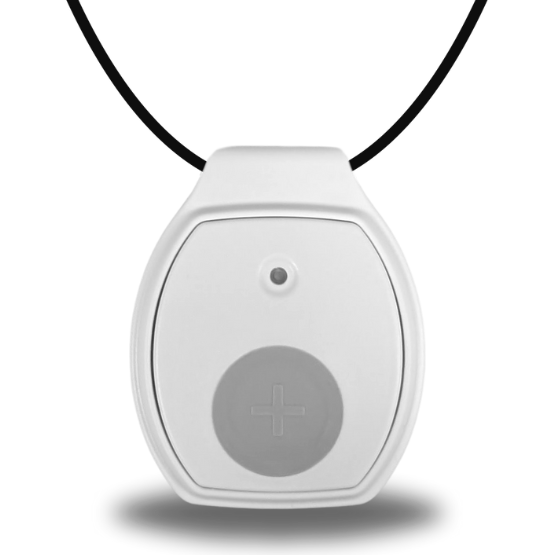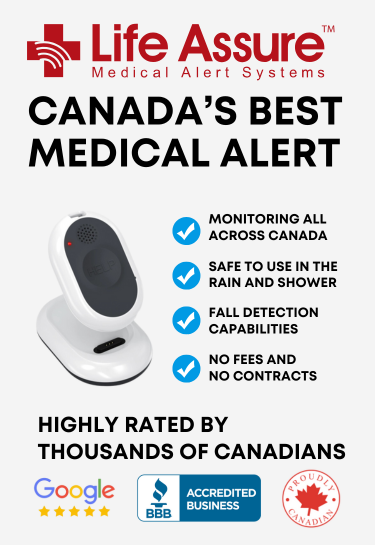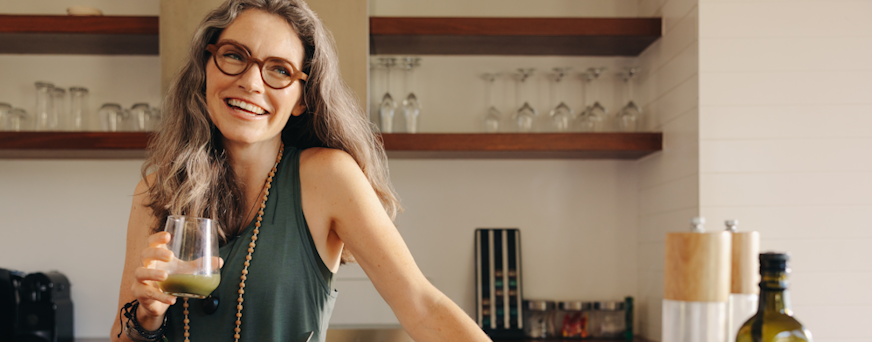What To Eat the Night Before A Cholesterol Test: Tips For Accurate Results
What you eat the night before a cholesterol test can directly influence your results—especially for seniors. While cholesterol tests help identify your risk for heart disease, the accuracy of those results depends on thoughtful preparation. A heavy or fatty dinner could lead to misleading numbers, prompting unnecessary concern or follow-up testing.
For Canadian seniors focused on their long-term health, understanding what to eat the night before a cholesterol test can make a big difference. Knowing which foods support accurate readings—and what to avoid—helps you prepare for your test with confidence.
By making informed choices ahead of time, you can give your healthcare provider a clearer picture of your actual cholesterol levels and take a proactive step toward better health.
Life Assure Product Quiz
Find The Perfect Medical Alert Device
Take our 30 second quiz and discover which Life Assure medical alert device is the right fit for you or a loved one.
Life Assure Product Quiz
Find The Perfect Medical Alert Device
Take our 30 second quiz and discover which Life Assure medical alert device is the right fit for you or a loved one.
All About Cholesterol Tests
A cholesterol test, also called a lipid panel, measures the levels of different fats in your blood: HDL (good cholesterol), LDL (bad cholesterol), total cholesterol, and triglycerides. These numbers help your healthcare provider assess your risk for heart disease, stroke, and other health issues.
Accuracy matters—especially for seniors managing multiple health conditions. Even one high-fat meal the night before your test can cause a temporary spike in LDL or triglyceride levels, leading to results that don't reflect your typical diet or habits.
Many people believe they should skip meals entirely or fast longer than recommended. But these misconceptions can backfire, especially for older adults. Extended fasting may lead to dizziness, low energy, or blood sugar fluctuations.
By understanding what the test measures and how preparation affects results, you can work with your doctor to gain a more accurate assessment of your cardiovascular health and determine the best steps moving forward.
The Impact Of Diet On Cholesterol Levels
What you eat before your cholesterol test can directly influence the results. Even a single high-fat or sugary meal can raise your triglyceride levels and skew your LDL reading. That's why healthcare providers often recommend consistent eating habits in the days leading up to testing.
For seniors, this consistency matters even more. As metabolism slows with age, your body may take longer to process certain foods. Meals high in saturated fats or refined carbohydrates may linger in your system longer, increasing the chances of an inaccurate result.
Choosing lighter, balanced meals for at least 24 hours before your appointment can provide a clearer view of your long-term cholesterol trends. By maintaining a stable and mindful diet the night before your test, you contribute to more accurate results, allowing your healthcare provider to make the most informed recommendations for your health.
What To Eat The Night Before A Cholesterol Test
The night before your cholesterol test isn't the time for a heavy or indulgent meal. Instead, choose simple, balanced foods that support accurate readings. What you eat during this time can impact your LDL and triglyceride levels. Opting for healthier choices ensures your results reflect your typical health, not just the effects of one meal.
Healthy Dinner Options
The best foods to eat the night before a cholesterol test are low in saturated fat, high in fiber, and easy to digest. A balanced dinner helps keep your blood fat levels stable and prevents short-term spikes that could distort your results.
Aim for meals that include lean protein, whole grains, and plenty of vegetables. Grilled salmon with quinoa and steamed broccoli is a great option, as is lentil soup paired with roasted sweet potatoes. For lighter appetites, try a veggie stir-fry over brown rice or a mixed salad with chickpeas and olive oil dressing.
Fiber-rich foods, such as legumes and whole grains, can help lower cholesterol levels over time and won't interfere with overnight digestion. These options are also gentle on the stomach, which is especially helpful for seniors who may experience slower digestion or sensitivities to heavy meals.
Foods To Avoid
Steer clear of foods high in saturated fats, added sugars, or excessive sodium the night before your cholesterol test. These items can cause temporary spikes in cholesterol and triglyceride levels, leading to results that don't reflect your usual health.
Avoid red meat, fried foods, cheese-heavy dishes, buttery sauces, and processed snacks. Desserts like cake, cookies, or ice cream can also interfere with your readings, especially if eaten late in the evening.
It's also best to skip alcohol, as it can raise triglycerides and affect liver function, both of which can skew test results. Opting for a lighter, nutrient-dense dinner instead of a rich or indulgent one sets you up for more accurate outcomes.
Hydration And Its Role
Staying hydrated supports healthy blood flow and proper lab testing. Drink water throughout the day and evening before your cholesterol test unless your doctor tells you otherwise.
Plain water is the best choice. Avoid sugary drinks, juices, and anything caffeinated close to bedtime, as they may interfere with sleep or affect your metabolism.
For seniors, maintaining hydration also helps prevent dizziness or fatigue during fasting periods, making the testing experience safer and more comfortable.
Timing Of The Last Meal
Finish your last meal 9 to 12 hours before your scheduled cholesterol test. This window allows your body to process the food fully, giving your provider a clearer view of your baseline cholesterol levels.
If your doctor has ordered a fasting test, be sure to follow their exact instructions. Seniors, in particular, should avoid fasting longer than necessary, as it can lead to low energy or blood sugar issues. When in doubt, confirm your fasting window ahead of time.
Additional Tips For Preparing For A Cholesterol Test
Along with eating wisely, be sure to follow any instructions from your healthcare provider. Some cholesterol tests allow for non-fasting samples, while others require a specific fasting window. Confirm your test type in advance.
If you take medications or supplements, ask whether you should continue them as usual the night before. Don't make changes without medical advice.
Try to get a good night's sleep, stay calm, and avoid heavy activity right before your test. These small habits support consistent readings—especially for seniors managing multiple health concerns.
Conclusion
Choosing the right foods the night before your cholesterol test helps you get results that reflect your real health. Stick to balanced meals, avoid heavy or sugary foods, and follow your provider's guidance.
For Canadian seniors, these habits play an even bigger role in supporting long-term heart health and avoiding unnecessary follow-ups. Small steps can lead to more informed, confident care.











 Get Help With The Push Of A Button
Get Help With The Push Of A Button















